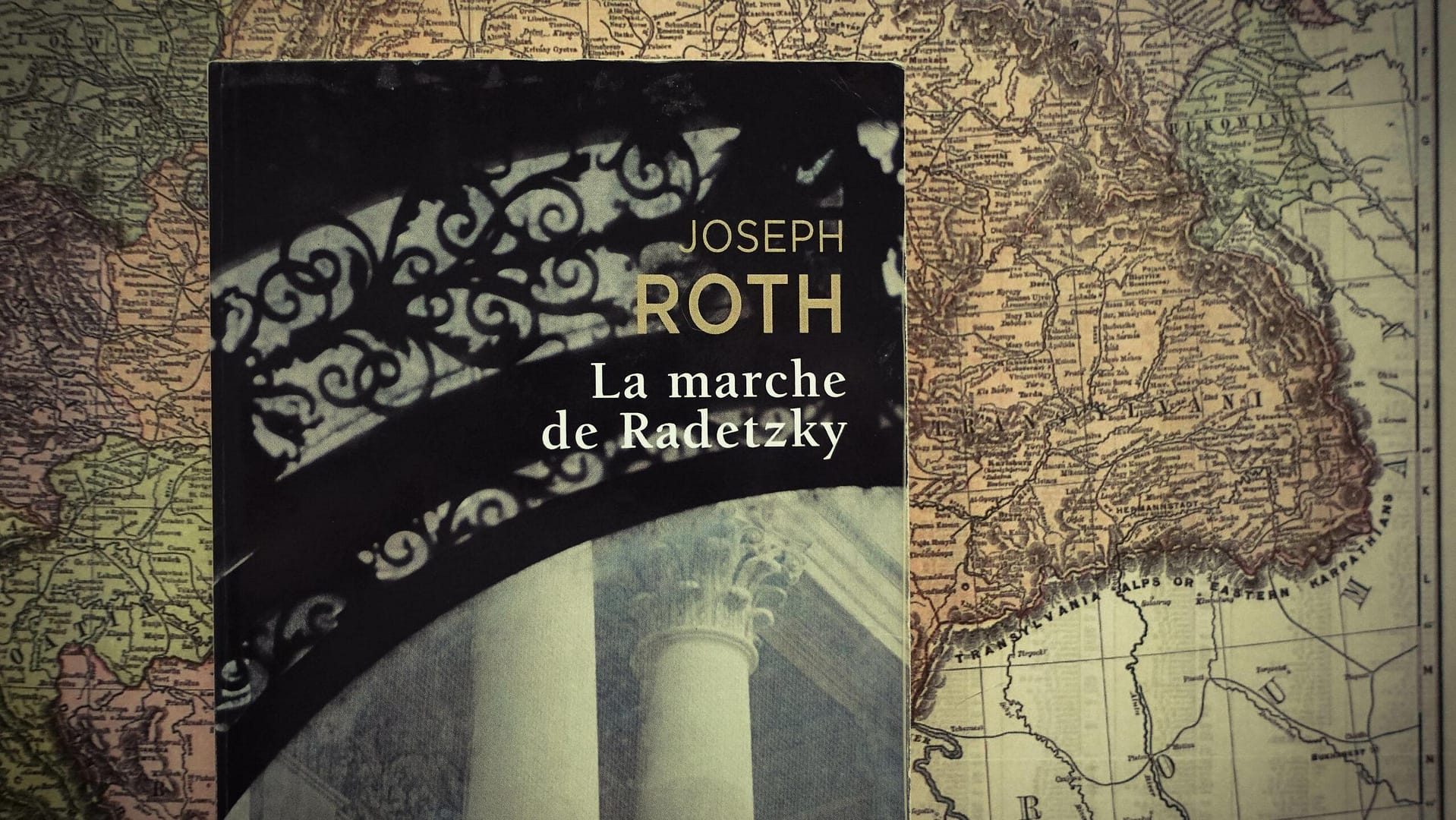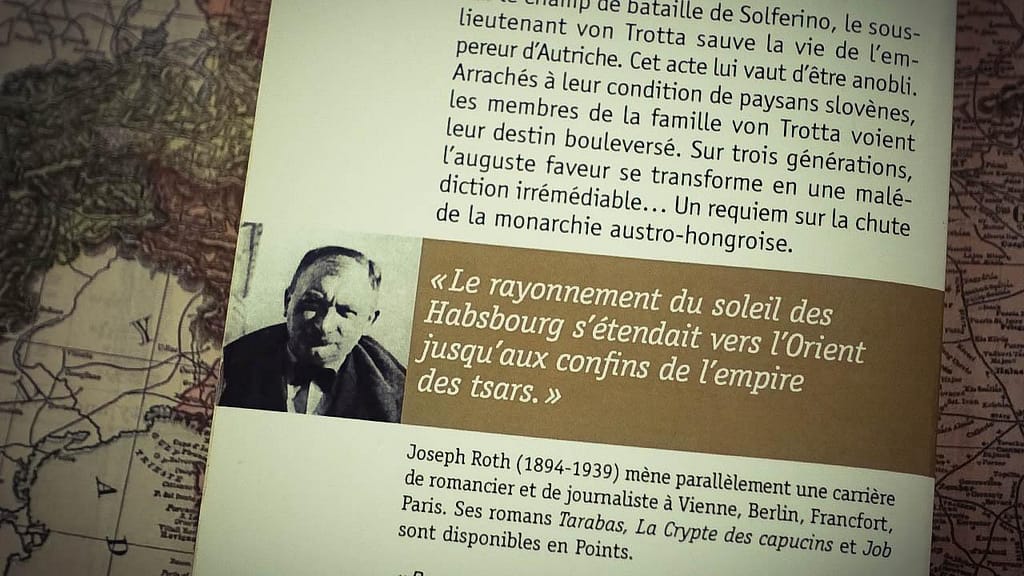Hello friends ! No, it’s not January 1st just yet, but you can still clap your hands to the music in honour of today’s book review : Joseph Roth’s world famous 1932 novel, The Radetzky March.
Nobel Prize laureate Mario Vargas Llosa called this the best political novel ever written. It should have been a sign for the complete novice that I am in matters of political novels, and yet, I was reluctant when starting to read it.
The novel tells the story of three generations of the Trotta family, Austro-Hungarian soldiers and civil servants of Slovenian origin, from the battle of Solferino in 1859 to the collapse of the Empire in 1918. Looking back at the plot, I would say this is a half military and half psychological novel, and that might not sound very appealing but the balance between the two gives a very good feel to the last decades of the Austro-Hungarian Empire. It is an immersive novel, with descriptive passages of such intensity that even I, the reluctant reader in search of cosy Christmas comfort instead of military conflict, was swept away.
Having visited parts of Transylvania, back home this summer, that were under Austro-Hungarian rule at the time, many images from the story over lapsed with my recent memories. I had no trouble imagining the descriptions of Sunday lunch back in a quiet provincial town, when young Trotta came back from military school to visit his father, the district administrator. The local marching band playing the fashionable Radetzky tune under the windows of the official’s home, while the governess served the traditional Sunday meal, a tafelspitz, the Emperor’s favourite dish. These are just a few examples of elements considered to be a criticism of a crumbling way of life. Did I perceive them as such ? Not entirely, at least not as a reproachful, revolutionary picture of the era. But you can certainly sense a sadness of things coming to an end, with the uncertainty of what will happen next.
“That was how things were back then. Anything that grew took its time growing, and anything that perished took a long time to be forgotten. But everything that had once existed left its traces, and people lived on memories just as they now live on the ability to forget quickly and emphatically.”
― Joseph Roth, The Radetzky March
As you can tell even from a short quote, the style of writing is elegant. Going into a political novel defined as being critical, satirical even with regards to a part of the Austrian history I appreciated, I think I was expecting a more avantgarde style in writing, the kind of unconventional phrases that I don’t always enjoy reading. In the end, I was pleasantly surprised by the novel as a whole, both plot and style. I read it with the same pleasure a good Flaubert can give me, and I consider it one of the great Austrian discoveries of my Advent Calendar.
Until tomorrow, happy reading !







